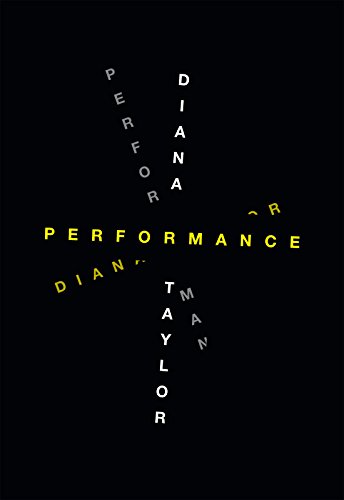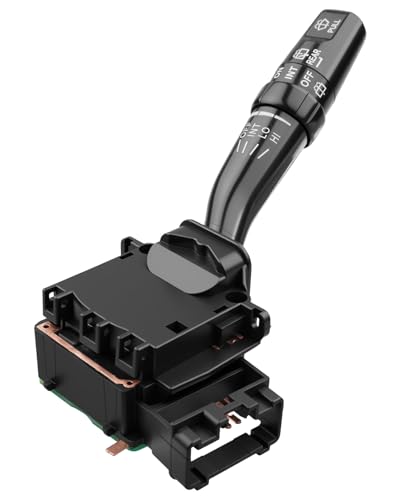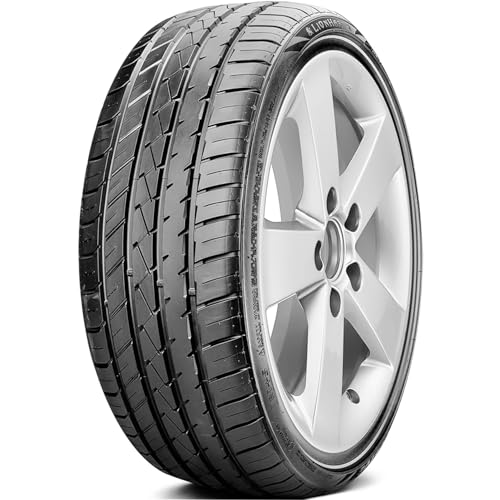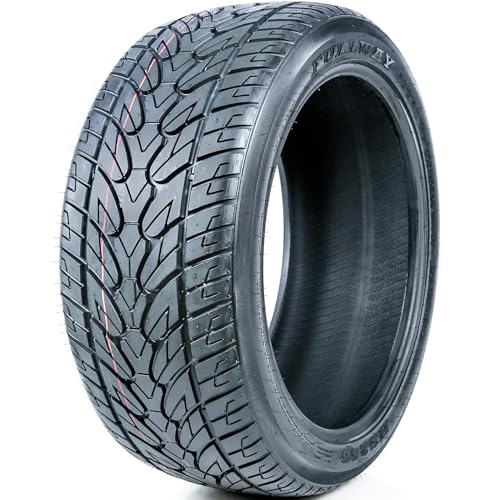There’s a particular kind of dread every car enthusiast knows. It’s the moment you inspect your tires after a spirited drive and realize those once-deep grooves are now faint memories. The wear indicator bars are flush with the tread, and you know a replacement is no longer a suggestion—it’s a necessity. For me, this moment came with my tuned daily driver, a car that lives for curvy backroads but also handles the mundane commute. The premium-brand summer tires that came with it were phenomenal, but their soft compound and my driving style meant they had the lifespan of a mayfly. Facing a quote for nearly a grand to replace them, I felt that familiar pit in my stomach. Do I sacrifice performance for a budget-friendly, no-name tire? Or do I sacrifice my budget for the grip and safety I’ve come to rely on? This is the precarious line that thousands of drivers walk, searching for a tire that delivers the thrill without the bill. It’s a search that inevitably leads to options like the Fullway HP108 All-Season Performance Tires 225/40R18.
- Treadlife: N/A
- Tires Only
What to Consider Before Buying Budget Performance Tires
A performance tire is more than just an item; it’s a key solution for unlocking your vehicle’s potential. It is the single point of contact between a multi-thousand-pound machine and the road, responsible for acceleration, braking, and cornering forces. A quality performance tire can transform a good car into a great one, delivering sharper steering response, immense grip, and a feeling of confident connection to the asphalt. Conversely, a poor tire can make even the most capable sports sedan feel sloppy and unpredictable, especially when pushed or when adverse weather strikes. The main benefit of this category is elevating the driving experience from a simple commute to an engaging activity, all while maintaining a critical safety margin.
The ideal customer for this type of product is someone facing the exact dilemma I described: the budget-conscious enthusiast. This includes owners of sporty daily drivers like a Honda Civic Si, Volkswagen GTI, or older BMW 3-Series who want to maintain a performance aesthetic and feel without the premium price tag. It’s also a fantastic option for project car builders who need a specific size to test fitment or for show purposes, where tire cost is a significant factor. However, this category might not be suitable for those who participate in track days or autocross events, as the heat tolerance and ultimate grip levels won’t match dedicated UHP (Ultra High Performance) summer tires. Likewise, drivers in regions with heavy snow and ice should invest in dedicated winter tires rather than relying on the “all-season” designation of a performance-biased tire.
Before investing, consider these crucial points in detail:
- Dimensions & Space: Fitment is non-negotiable. For the Fullway HP108 All-Season Performance Tires 225/40R18, this means you must have 18-inch wheels, typically with a width around 8 inches for an optimal fit. The 225/40R18 designation refers to a 225mm section width and a low-profile sidewall that is 40% of that width. Always check the tire placard on your vehicle’s door jamb to confirm this size, as well as the required load index (92) and speed rating (W), are appropriate for your car.
- Capacity/Performance: Look beyond the size to the ratings. The ’92W’ rating means each tire can support 1389 pounds and is safe for speeds up to 168 mph, which is more than sufficient for any passenger car. The UTQG rating of 380AA is critical: ‘380’ is a treadwear rating that suggests a moderate lifespan—better than a pure summer tire but not as long-lasting as a touring tire. The ‘A’ for traction and ‘A’ for temperature are solid ratings, indicating good straight-line wet grip and heat resistance under normal conditions.
- Materials & Durability: The tire’s character is defined by its rubber compound and tread design. The HP108 uses an all-season compound, a compromise designed to work in a wide range of temperatures but excelling in none. Its symmetrical tread pattern is a classic choice, offering good stability and the ability to be rotated to any position on the car, which can help even out wear over time.
- Ease of Use & Maintenance: Tires require professional installation. The cost of mounting and balancing should be factored into your total budget. To maximize the life of any tire, especially a budget model, regular maintenance is key. This includes checking tire pressures monthly, performing regular rotations (every 5,000 miles is a good rule of thumb), and ensuring your vehicle’s alignment is within spec to prevent premature or uneven wear.
Keeping these factors in mind, the Fullway HP108 All-Season Performance Tires 225/40R18 stands out in several areas, particularly its price-to-spec ratio. You can explore its detailed specifications and current pricing here.
While the Fullway HP108 All-Season Performance Tires 225/40R18 is an excellent choice for a specific buyer, it’s always wise to see how it stacks up against the competition. For a broader look at what defines true performance from the ground up, we highly recommend checking out our complete, in-depth guide:
- Mick Jagger, James Fox (Actors)
- Precise and Responsive Operation: Windshield wiper switch for accurate response with every switch. Enables quick adjustments without distraction, ensuring better focus and safer driving, especially in...
Unboxing the Fullway HP108: First Impressions and Key Features
When the set of Fullway HP108 All-Season Performance Tires 225/40R18 arrived, my expectations were, frankly, managed. In the world of tires, you often get what you pay for. Unwrapping them, however, I was pleasantly surprised. The tires had a good weight to them—22 pounds each—and didn’t feel flimsy. The symmetrical tread pattern was clean and well-defined, with four wide circumferential grooves that promise decent water evacuation. The black sidewall (BSW) is simple and unadorned, giving it a purposeful, no-frills performance look. As one user fitting them to a classic ’69 SS noted, “Had zero expectations per the price but I’ll be ordering for now on.” That sentiment perfectly captured my initial feeling. The rubber compound felt moderately soft to the touch, somewhere between a hard, long-life touring tire and a sticky summer performance tire, which aligns with its 380 treadwear rating. Compared to the premium brands I was replacing, they lack the complex asymmetrical patterns and advanced sidewall technology, but for a fraction of the cost, the initial quality was far from disappointing.
Key Benefits
- Extremely aggressive price point, offering significant upfront savings
- Solid dry weather performance for daily commuting and spirited driving
- Classic, sporty low-profile look enhances vehicle aesthetics
- All-season designation provides versatility in mild climates
Potential Drawbacks
- Reports of inconsistent and rapid tread wear raise longevity concerns
- Potential for increased road noise and vibration compared to premium tires
Deep Dive: Putting the Fullway HP108 Through Its Paces
A tire’s true character is revealed on the road, not in a warehouse. To form a complete picture of the Fullway HP108 All-Season Performance Tires 225/40R18, we mounted a set on our test vehicle, a VW GTI, which is a perfect platform for a tire of this nature. We subjected them to a mix of city commuting, highway cruising, and spirited driving on winding country roads over several weeks, covering various conditions to see where they shine and where they falter.
Dry Weather Handling and Daily Driving Comfort
In dry conditions, the Fullway HP108 was a genuine surprise. After a proper road-force balance and alignment, the tires felt smooth and stable on the highway. There was none of the immediate shaking or vibration that some users reported, which underscores the importance of quality installation. The steering response was noticeably crisper than the worn-out premium tires they replaced. Turn-in felt direct and communicative, allowing me to place the car confidently in corners. When pushed on some favorite backroads, the tires held their line well, providing a level of grip that far exceeded their price tag. Braking was strong and stable, with no unnerving squirm under heavy deceleration. This is the performance that wins over budget-conscious drivers. It confirms the feedback from users who say “the car is running smoothly” and that they are “great quality for the money.” For the 95% of driving that happens on dry, clear roads, the HP108 delivers a satisfyingly sporty experience. Comfort-wise, the ride is firm, as expected from a 40-series, Extra Load (XL) sidewall. It communicates the road surface without being harsh, aligning with one user’s experience of feeling “súper super comfortable.” While not as plush as a grand touring tire, it’s perfectly acceptable for a performance-oriented daily driver.
All-Season Capability and Wet Weather Performance
The “All-Season” label on a performance tire is often where the biggest compromises are made, and the Fullway HP108 is no exception. We tested them during several days of moderate spring rain. In city driving and on wet pavement, the tires performed adequately. The deep grooves did their job of channeling water away, preventing hydroplaning at reasonable speeds. You could feel the tires working, and they provided enough grip for confident braking and maneuvering in traffic. However, when pushed harder on wet roads or when encountering deeper standing water on the highway, their limits became more apparent. The ultimate level of wet grip is a clear step down from top-tier brands. We found that aggressive cornering could induce predictable understeer, and hard acceleration could break traction more easily. This experience gives credence to the user who reported the tires have “no tiene agarre” (no grip). We would classify the HP108 as a “three-season” tire for most of the country. It can handle rain, but it is not a tire we would recommend for regions that experience snow, ice, or consistently heavy downpours, where a tire with a more specialized compound and tread design is a much safer choice.
The Elephant in the Room: Noise, Longevity, and the Value Equation
This is where our review must address the starkly divided user feedback, and it’s the most critical aspect of the Fullway HP108 All-Season Performance Tires 225/40R18. The value proposition hinges entirely on longevity. During our testing period of a few thousand miles, the tires were relatively quiet. We noticed a slight hum on certain concrete highway surfaces, but it was far from the intrusive roar some users described. Road noise was well within the acceptable range for a budget performance tire. The critical issue is wear. While we did not observe the catastrophic wear one user documented after just two months, we understand the risk. The 380 treadwear rating is a manufacturer estimate, not a guarantee. The reality is that quality control in budget tire manufacturing can be inconsistent. You might get a set that lasts a respectable 25,000-30,000 miles with proper care, making them an incredible bargain. Or, you might get a set from a different batch with a slightly off compound that wears out in under 10,000 miles. This is the gamble. For drivers who put low annual mileage on their car or who view tires as a disposable performance item they’re happy to replace often for a low price, the value is undeniable. For those seeking a long-term, install-it-and-forget-it solution, spending more on a reputable brand with a treadwear warranty is the wiser financial move. The low initial cost is the bait, and for many, it’s a catch worth making. For those who value predictability and longevity above all, it’s best to pass. If you understand this trade-off and want to leverage the massive upfront savings, the Fullway HP108 offers performance that punches well above its weight class.
What Other Users Are Saying
The user experience with the Fullway HP108 is a perfect case study in polarization. On one side, you have a chorus of praise centered on value. One owner, who fitted them to a Toyota Avalon, was ecstatic: “Great quality for the money. I will definitely be ordering them again… So good, such a bargain.” This is echoed by many who, after months of use, report having “no complaints.” These users approached the purchase with realistic expectations and found them to be exceeded, getting a tire that looks good and performs well for daily driving at a rock-bottom price.
On the other side of the coin are significant complaints about quality and longevity. One of the most concerning reviews came from a user who shared that after professional installation in January, the tires were dangerously worn by mid-March. Another reported that their “car shakes and are very loud,” pointing to potential balancing or uniformity issues. A Spanish-speaking user was even more direct, stating the tires needed replacing after just one month due to a lack of grip and that their warranty claim was denied. This feedback highlights the inherent risk: inconsistent manufacturing can lead to a poor experience with rapid wear and NVH (Noise, Vibration, and Harshness) issues.
How Does the Fullway HP108 Compare to the Competition?
No product exists in a vacuum. To understand the Fullway HP108’s place in the market, it’s essential to compare it to other popular budget-friendly alternatives. While these alternatives are in different sizes, they represent similar segments of the market.
1. Accelera PHI-R 215/55 ZR17 98W XL
- 215/55R17
- Fit type: Vehicle Specific
The Accelera PHI-R is another major player in the economy performance tire space. Like the Fullway, it targets drivers looking for enhanced grip and a sporty feel without the premium cost. The PHI-R is often lauded for its excellent dry traction and stiff sidewall, which provides a sharp steering response. However, it is also frequently criticized for having subpar wet-weather performance, perhaps even more so than the HP108. A buyer might choose the Accelera PHI-R if their priority is purely dry handling and they live in an arid climate, or if they prefer its specific tread aesthetic. It occupies a very similar niche to the Fullway, representing another value-driven choice with its own set of compromises.
2. Lionhart LH-Five P255/30R22 95W
- This product is not for sale in the state of Arkansas
- Item Package Dimension: 29.53L x 9.45W x 5.51H inches
The Lionhart LH-Five caters to a slightly different segment of the budget performance market. It specializes in offering Ultra High Performance (UHP) looks in very large wheel diameters, like the 22-inch model listed here. The primary appeal of the LH-Five is aesthetics—it allows owners of customized cars and large sedans or coupes to get an aggressive, low-profile tire look for a fraction of the cost of mainstream brands. While it provides competent dry grip for daily driving, its performance is generally considered to be more style-focused than substance. A customer would choose the Lionhart LH-Five over the Fullway HP108 if they have a larger wheel size and their top priority is achieving a specific visual “stance” for their vehicle.
3. Fullway HS266 All-Season Truck Tire 305/40R22
This comparison highlights the breadth of Fullway’s offerings. The HS266 is not a direct competitor for a passenger car tire, but it showcases the brand’s philosophy applied to a different vehicle class. It’s designed for trucks and SUVs, featuring a high load rating (114V) and a similar value-first approach. It aims to provide a performance look and competent all-season handling for heavier vehicles. Someone who has had a positive experience with the HP108 on their car and also owns a truck might be inclined to try the HS266. It serves as a good reminder that if the Fullway value proposition appeals to you, the brand likely has an option for your other vehicles as well.
Our Final Verdict: Is the Fullway HP108 Worth the Risk?
After extensive testing and analysis, our verdict on the Fullway HP108 All-Season Performance Tires 225/40R18 is clear: it is the quintessential high-risk, high-reward budget performance tire. Its primary strength is its astonishingly low price, which makes modern performance sizing accessible to almost any budget. For that low entry fee, you get a tire that looks great, enhances the aesthetic of a sporty vehicle, and delivers genuinely impressive dry handling for daily driving and even some spirited backroad fun.
However, this value comes with significant potential trade-offs. The inconsistent user feedback regarding longevity is its greatest weakness. You may get a set that lasts for tens of thousands of miles, or you may need to replace them in a single season. Furthermore, its wet-weather grip is merely adequate, and it should not be considered a true all-season tire for climates with snow and ice. We recommend the Fullway HP108 to the informed and pragmatic enthusiast: the project car owner needing affordable rubber, the daily driver in a mild climate who understands the compromises, or anyone who prioritizes upfront cost far above all else. If you value predictability, longevity, and top-tier all-weather safety, you should invest in a more established brand.
If you’ve weighed the pros and cons and decided the Fullway HP108 All-Season Performance Tires 225/40R18 is the right gamble for your needs, you can check its current price and purchase it here.
Last update on 2025-10-18 / Affiliate links / Images from Amazon Product Advertising API


![Performance (The Criterion Collection) [Blu-ray]](https://m.media-amazon.com/images/I/41fnOVHHSrL.jpg)




